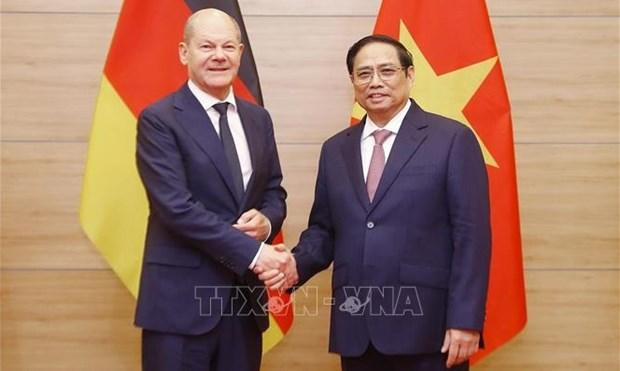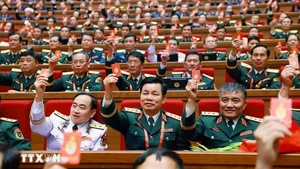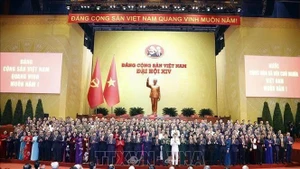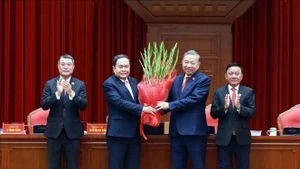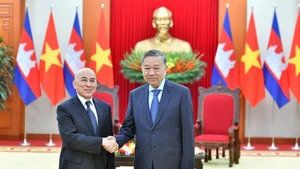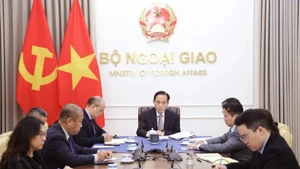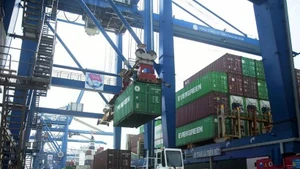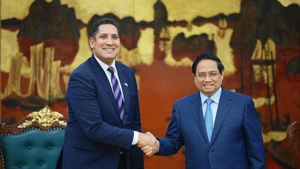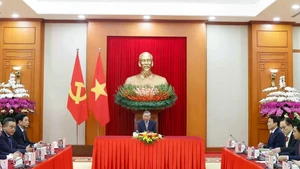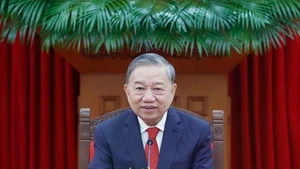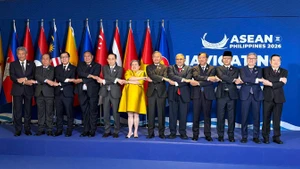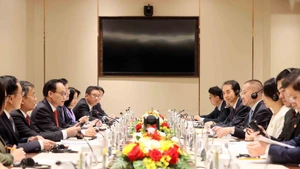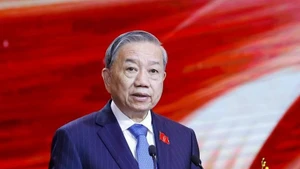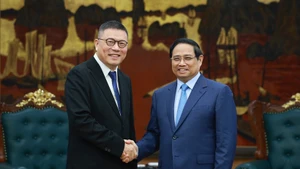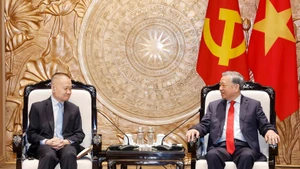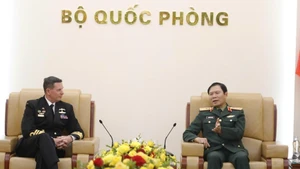An article published in the Handelsblatt newspaper said that in Hanoi, the Chancellor was respectfully received by Vietnamese leaders. Vietnam is the first stop on Scholz's five-day Asia tour, with the leader of Europe's leading economy hoping to promote opportunities to strengthen economic cooperation with Vietnam, it noted.
The author quoted the Chancellor as saying in the current context, Germany must expand its business market, supply chain, source of raw materials and production locations so that it does not depend on any country. Vietnam plays a particularly important role in this process. Germany wants to support Vietnam's transition towards carbon neutrality, such as its building of metro systems in the capital Hanoi.
As per the article, the two countries have conditions for closer economic cooperation. Currently, Germany is Vietnam's most important trading partner in the EU with a trade turnover of 14 billion EUR (about 14.46 billion USD). Vietnam, meanwhile, is Germany's largest trading partner in ASEAN. In addition, the Vietnamese community in Germany is now about 180,000 people, who make an important contribution to the sides’ relationship. During the COVID-19 pandemic, the two countries have also actively supported each other to overcome difficulties.
The article said via the visit, the German side hopes to strengthen cooperation with Vietnam on raw materials. Vietnam possesses many natural resources with large reserves such as copper, titanium and zinc. In addition, the visit must be viewed in a larger international context and is part of the German Government's Indo-Pacific strategy.
According to the comments of the Wirtschaftwoche newspaper, the Chancellor’s visit to Vietnam perfectly fits his Asia tour. The trip is considered a "working visit", promoting the sides’ strategic partnership that has existed since 2011. The focus of Scholz’s meeting with Prime Minister Pham Minh Chinh and a large number of Vietnamese business representatives was economic projects, especially in the fields of infrastructure, health care, and commerce. The two sides have signed a number of mutual agreements. Germany is also very interested in cooperating with Vietnam in education and training and in the sending of Vietnamese skilled workers to the German labour market.
Highlighting sound outcomes of the visit, the Die Welt newspaper said as part of the trip, the two sides signed three joint cooperation agreements in the fields of defense, labour and education. Notably, the Vietnam - Germany University, a joint educational cooperation project between the two countries, has been implemented very successfully in the past time. In addition, they agreed to establish the Germany - Vietnam energy dialogue, a cooperation format that will enable them to intensify discussions on opportunities for climate-friendly technologies and socially equitable energy transition.
